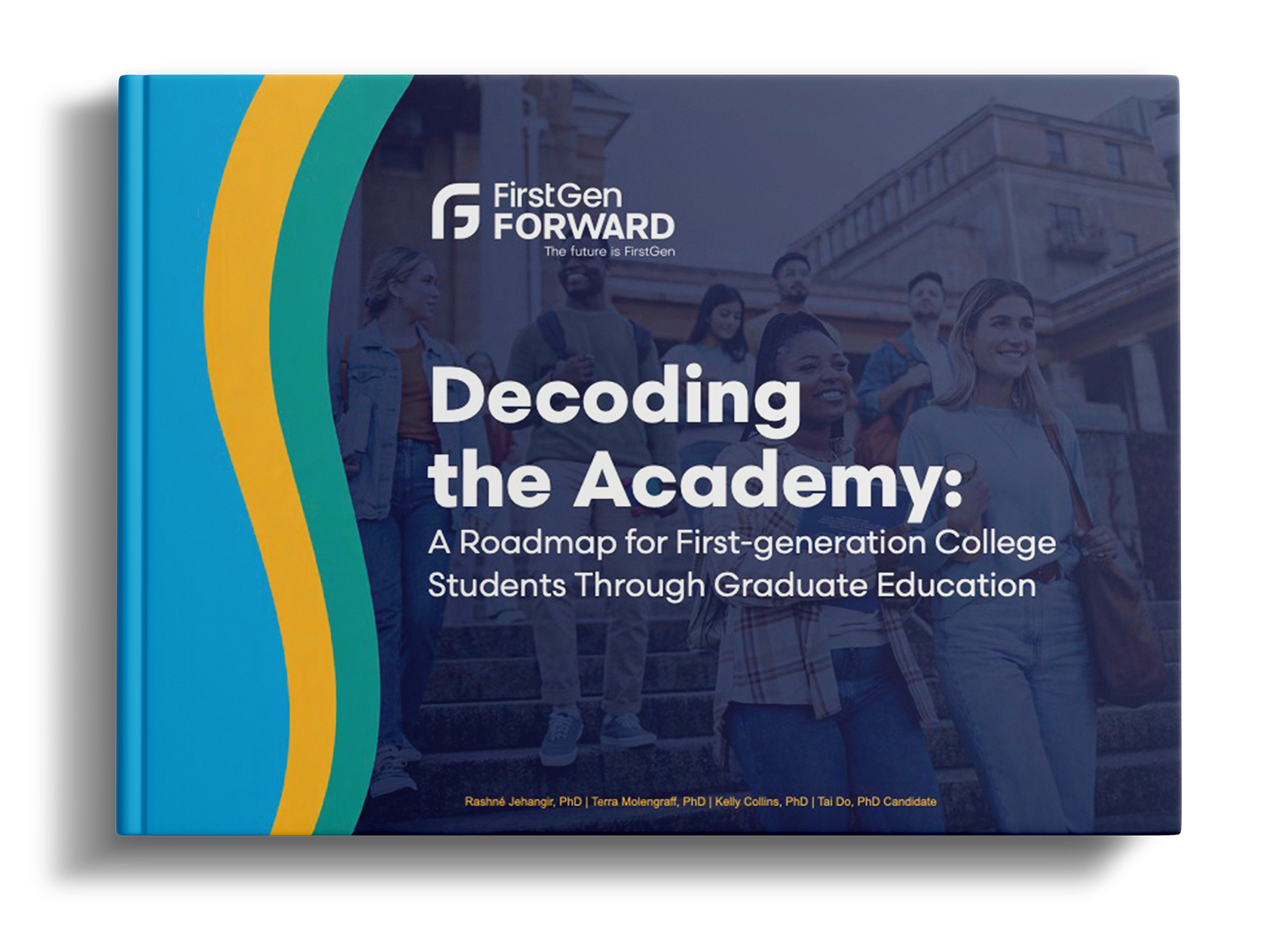Decoding the Academy:
Decoding the Academy:
A Roadmap for First-generation College Students Through Graduate Education

Decoding the Academy: A Roadmap for First-generation College Students Through Graduate Education, authored by University of Minnesota—Twin Cities’ researchers Dr. Rashné Jehangir, Dr. Kelly Collins, Dr. Tai Do, and the University of Michigan’s Dr. Terra Molengraff, examines first-person accounts and vignettes from twenty-nine (29) first-generation college graduate students to analyze the current landscape of the first-generation graduate student experience and provide recommendations for change for anyone seeking to improve support for these students.
Suggested citation: Jehangir, R., Molengraff, T., Collins, K., & Do, T. (2024). Decoding the Academy: A roadmap for first-generation college students through graduate education. FirstGen Forward.
Download The Digital Book
Authors

Rashné Jehangir, Ph.D.
Professor of Higher Education and Assistant Dean of Education Opportunity Program; Robert H. Beck Chair of Ideas, University of Minnesota—Twin Cities

Terra Molengraff, Ph.D.
Editorial Assistant; Assistant Director of First Generation Initiatives, University of Michigan

Kelly Collins, Ph.D.
Director of Education, Office for Equity and Diversity, University of Minnesota

Tai Do, Ph.D.
Graduate Research Assistant, First-Generation Institute, University of Minnesota
Navigating the Themes
The research supporting Decoding the Academy: A Roadmap for First-generation College Students Through Graduate Education yielded nine (9) themes that are explained and detailed in the book. You will notice a floating table of contents, promoting a smooth transition through the various themes identified below:
- Black Boxes: reviews the hidden expectations and rules within higher education, and how first-generation graduate students describe, negotiate, and navigate these rules and structures
Ivory Tower Socialization: examines how first-generation graduate students moved from making sense of unknown structures, norms, and values to trying to live and learn within a culture that was often unclear or even at odds with values - Building Capital: highlights the multifaceted relationships established by first-generation graduate students within academic settings and throughout their time in graduate school
- Doing (Me) Research: looks at how first-generation graduate students use personal experiences and community connections to enrich academic inquiry while grappling with the intellectual and emotional labor inherent in research topics closely aligned with their identitiesJarring Juxtapositions: uncovers how first-generation graduate students navigate the many tensions and dissonances at the heart of the first-gen experience
- Family Role: inspects how first-generation graduate students perceive, understand, and negotiate their roles in their families during the graduate school experience
Financing Education: offers a critical exploration of the financial barriers that first-generation graduate students experience at the graduate level - Mental Health Management: reviews the influential yet largely unacknowledged role of mental health, offering critical insights into interventions that institutions can employ and expand to the benefit of all students
- Making Meaning of First-gen Identity: demonstrates the impact of context, institutional narrative, and representation in faculty, staff, and peers on the process of sensemaking about the first-generation identity